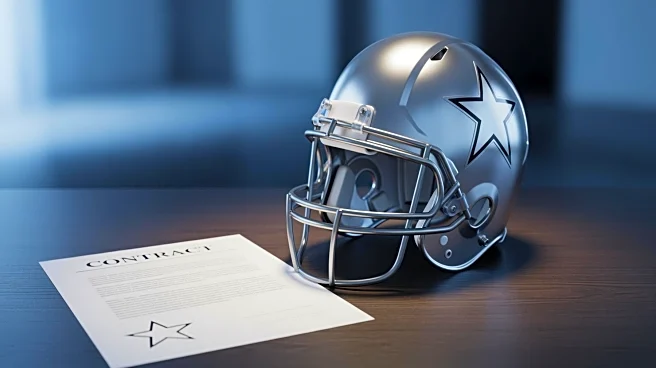What's Happening?
The Michigan Wolverines football team faced a significant defeat against the USC Trojans, losing 31-13 at the L.A. Memorial Coliseum. Under the leadership of Sherrone Moore, Michigan struggled defensively, allowing nearly 500 yards of total offense to USC. The Trojans' running back, King Miller, was a standout performer, contributing 158 of the 224 rushing yards. Despite keeping the game close initially, Michigan allowed 17 unanswered points between the end of the first half and the beginning of the fourth quarter. This loss marks Moore's continued challenges in road games, with his record now standing at 1-5 in such matches.
Why It's Important?
This defeat is significant for Michigan as it highlights ongoing defensive vulnerabilities and challenges in securing road victories under Sherrone Moore's leadership. The loss impacts Michigan's standing and momentum in the college football season, potentially affecting their rankings and bowl game prospects. For USC, the victory represents a crucial win against a ranked opponent, boosting their confidence and standing in the Lincoln Riley era. The game also underscores the competitive nature of college football, where home-field advantage and strategic execution play pivotal roles.
What's Next?
Following this game, USC is set to face Notre Dame in a primetime matchup, which will be crucial for maintaining their momentum and proving their capabilities against another formidable opponent. Michigan, on the other hand, will host Washington for the Big Noon Kickoff, providing them an opportunity to regroup and address their defensive issues. Both teams will be looking to capitalize on their upcoming games to improve their standings and performance in the season.
Beyond the Headlines
The defeat raises questions about Michigan's ability to perform under pressure in away games and the effectiveness of their defensive strategies. It also highlights the importance of leadership and adaptability in college sports, as teams must continuously evolve to address weaknesses and capitalize on strengths. The cultural and strategic dynamics within college football programs can significantly influence their success and reputation.









